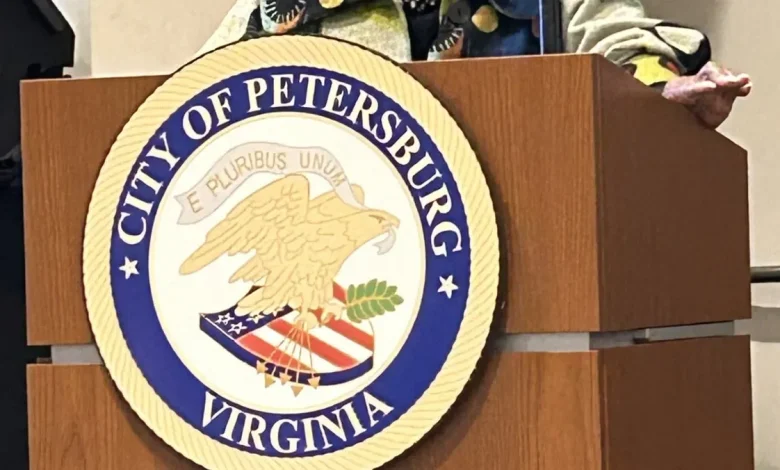Virginia state senate Democratic leader slams Maryland counterpart over redistricting

Virginia Senate President L. Louise Lucas called out Maryland Senate President Bill Ferguson, who has opposed his state jumping into the national fray.
‘Keep our name out of your mouth:’ Gov. Moore responds to President Trump
Maryland Governor, Wes Moore, said “Keep our name out of your mouth”, referring to President Trump’s recent critical remarks about Baltimore.
Scripps News – WMAR Baltimore
President Donald Trump’s redistricting initiative has pulled two of the most powerful Democratic state legislators in the Washington, D.C. area into a public spat, with Virginia’s outspoken state Senate president slamming her Maryland counterpart for failing to respond to Republican efforts to redraw congressional maps in their favor.
Maryland Senate President Bill Ferguson, who has opposed his Democratic-controlled state jumping in the national fray, celebrated the party’s successful Nov. 4 results, saying a Democratic victory in Virginia governor’s race shows that, “we don’t need to rig the system to win.”
“When we provide a better vision about the future — lower costs, better services, and real solutions to protect against Trump — voters overwhelmingly choose our leadership,” Ferguson said in post on X.
Virginia Senate President L. Louise Lucas apparently didn’t appreciate Ferguson joining the parade of Democrats, given he blocked Maryland Gov. Wes Moore’s entry into the redistricting arms race over Congress.
“Get our victory in Virginia out of your mouth while you echo MAGA talking points,” Lucas, known to be an outspoken legislator, said in a Nov. 5 post X responding to Ferguson directly.
“Grow a pair and stand up to this president,” she added. “This is just embarrassing.”
Lucas’ criticism represents a rare public intra-party scuffle across state borders in the Washington, D.C. area, but it demonstrates how important changing the congressional maps has become for Democrats ahead of the 2026 midterms.
The Trump administration began arm twisting Republican-led states to redraw their boundaries mid-decade earlier this year in an effort to keep control of the U.S. House of Representatives. Several GOP-controlled states have taken steps to add more seats that lean towards their party, beyond the already-favorable maps approved at the beginnining of the decade (as is customary). It started with Texas, which drew a new map that could add up to five Republican seats.
Missouri signed into law a new map that could add a Republican seat. North Carolina redrew districts expected to squeeze out one House Democrat from a congressional delegation already heavily tilted toward the GOP. Indiana lawmakers have set a date next month to consider redistricting.
Moore enters redistricting battle over Maryland legislator’s objections
Democrats are fighting back, with some blue states drawing new lines to even the national playing field.
California approved Proposition 50, a ballot initiative spearheaded by Democratic Gov. Gavin Newsom that temporarily stops using a nonpartisan commission to draw congressional district boundaries. It passed with roughly 64% of the vote versus 36% who opposed the measure. Democrats hope to add up to five seats in the Golden State to cancel out their loss in Texas.
Now other blue states are hoping to follow suit, including Virginia, where legislators passed a new map that would add three new Democratic-leaning seats if voters approve a constitutional amendment.
Next door in Maryland, however, Moore and other leaders hit a roadblock when Ferguson opposed the idea of making all eight of the state’s seats favor the Democrats. All but one of Maryland’s House districts are currently represented by a Democrat.
David Schuhlein, a spokesman for Ferguson, expressed skepticism at the plan, saying the courts would likely knock any new maps down.
That concern hasn’t slowed down Maryland Gov. Wes Moore, who created a new advisory commission this month that will consider creating new congressional maps. That plan is being supported by national Democratic figures, including former U.S. Attorney General Eric Holder.
“I’ve been clear from day one: If other states are determining whether or not they have fair maps, so will Maryland,” Moore said in a Nov. 4 video announcing the move.
Ferguson responded on X that the state Senate is open to a process of public engagement on redistricting.
“If the goal of the commission is to hear directly from Marylanders, the Senate will participate in a process which includes in-person listening sessions in each of Maryland’s eight existing congressional districts,” he wrote. “Marylanders’ voices remain central to this process, and these public meetings will provide an opportunity for voters to hear about the unique legal barriers in Maryland – barriers that could unintentionally give Donald Trump another one or two of Maryland’s congressional seats should this effort backfire in our courts.”
This article has been updated with additional information.
Contributing: Sarah D. Wire, Terry Collins





